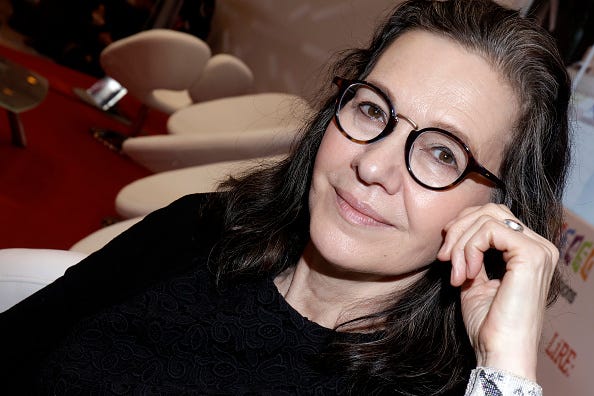The Writer's Almanac from Friday, June 7, 2013
"Wishes" by Ted Berrigan, from The Collected Poems of Ted Berrigan. © University of California Press, 2005.
ORIGINAL TEXT AND AUDIO - 2013
It's the birthday of the novelist Louise Erdrich, born in Little Falls, Minnesota (1954). She grew up in Wahpeton, North Dakota, the eldest of seven children. Her father came from a family of German immigrants, and her mother was French Ojibwe, and both her parents taught in the school run by the Bureau of Indian Affairs.
She went on to Dartmouth, admitted into the first class that accepted women — and it was also the first year a Native American Studies Department was formed. Her first novel, Love Medicine (1984), was a best-seller, and won a National Book Critics Circle Award. Love Medicine was made up of many different stories told by all kinds of people living in and around a fictional reservation outside the town of Argus, North Dakota. Her second novel, The Beet Queen (1986), was set in the town of Argus and focused on the German-American population there. Since then, she has set most of her novels in this same fictional place, novels like The Last Report on the Miracles at Little No Horse (2001), The Master Butchers Singing Club (2003), and The Plague of Doves (2008), which was a finalist for the Pulitzer Prize.
She said: "It didn't occur to me that my books would be widely read at all, and that enabled me to write anything I wanted to. And even once I realized that they were being read, I still wrote as if I were writing in secret. That's how one has to write anyway — in secret."
It's the birthday of novelist Elizabeth Bowen, born in Dublin, Ireland (1899). She's known for writing about British upper-class society in novels such as The Death of the Heart (1938) and A World of Love (1955).
It's the birthday of the woman who wrote, "We real cool. We / Left school. We / Lurk late. We / Strike straight." Gwendolyn Brooks, who was born in Topeka, Kansas (1917), but grew up and spent nearly all her life in the Southside of Chicago. She began writing poems when she was a child and published her first poem at the age of 13.
Her parents encouraged her literary ambitions and put her into contact with Langston Hughes, to whom she wrote and sent her poems. Langston Hughes wrote back to her: "You have talent. Keep writing! You'll have a book published one day."
She published her second collection of poetry, Annie Allen, in 1949, and in it she used an experimental form that she called the sonnet-ballad. Critics liked it, and a Times book reviewer praised her work as "full of insight and wisdom and pity, technically dazzling." The next year, in 1950, she became the first African-American to win the Pulitzer Prize.
She said about her poetry: "I wrote about what I saw and heard in the street. I lived in a small second-floor apartment at the corner, and I could look first on one side and then the other. There was my material."
Be well, do good work, and keep in touch.®
A Prairie Home Companion is coming to Moorhead, Minnesota!
September 26, 2024 – 7:00PM
Bluestem Center for the Arts Amphitheater





No mention of Michael Dorris. That is a little sad, to make someone invisible.